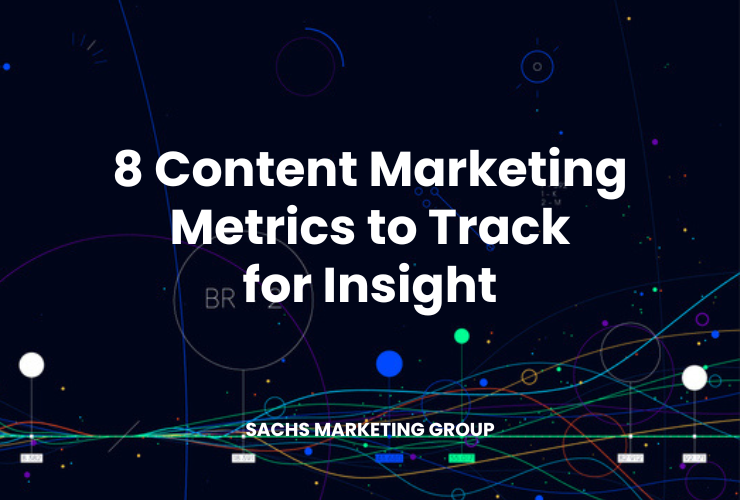Accurate measurement and evaluation are critical for successful content marketing. In order to gain actionable insights and optimize your strategies, it is essential to track various content marketing metrics such as Traffic Sources, Impressions, CTR, Bounce Rate, Content Engagement, Backlinks, Email Opt-in Rates, and Keyword Rankings.
Do you feel like your content marketing isn’t delivering the results you’d hoped for?
It can feel frustrating when you’re investing time and effort into creating content but aren’t seeing a significant return. You may even question if content marketing is worth the effort.
The solution lies in understanding and tracking the right content marketing metrics, as certain metrics can provide crucial insights into the effectiveness of your content strategy.
By understanding these metrics, you can optimize your strategy, create content that resonates with your audience, and ultimately drive the results you desire. To help you get started, we’ve gathered eight content marketing metrics to track for insight.
Overview
What is Content Marketing?
Content marketing is a strategic marketing approach that focuses on creating, distributing, and promoting valuable, relevant, and consistent content to attract and retain a clearly-defined audience. The ultimate goal is to drive profitable customer action.
Unlike traditional marketing strategies that focus on selling, content marketing provides useful information to consumers, builds trust and engagement, and subtly encourages them to do business with you.
This is why content marketing is important for small businesses – demonstrating your expertise and offering helpful content for people who may need help (before they become your customer) can help convince people to give you an opportunity to be of service.
Content Marketing Metrics to Track for Insight
As content marketing continues to evolve and grow as a pivotal part of digital marketing strategies, the need to measure and understand the effectiveness of your content becomes increasingly essential.
Here are eight content marketing metrics to track for helpful insight for your business:
1. Traffic Sources
Tracking your website’s Traffic Sources means identifying where your visitors are coming from. This metric can provide crucial insight into which platforms or campaigns are driving the most traffic to your content.
Google Analytics is a valuable tool for monitoring this metric.
For instance, you may find a significant portion of your traffic comes from social media platforms like Facebook or LinkedIn. This information can help you focus your efforts on the platforms that yield the most traffic and reconsider your strategy on the platforms that don’t. For example, a retail clothing business could realize that their blog posts shared on Pinterest drive more traffic than those shared on Twitter, and adjust their content sharing strategy accordingly.
2. Impressions
Impressions refer to the number of times your content is displayed, regardless of whether it was clicked or not.
This metric can be tracked using various tools, including social media platforms’ analytics, such as Facebook Insights or Twitter Analytics, or through Google Ads for paid campaigns. Higher impressions mean your content is reaching a broader audience.
For instance, if a software-as-a-service company runs an ad campaign on Google Ads, they would want to track how many times their ads are displayed to understand their ad’s visibility. If impressions are low, they might consider increasing their ad budget or improving their ad copy to reach more people.
3. Click-through-rate (CTR)
CTR is a crucial metric that measures the percentage of viewers who clicked on a specific link out of the total who viewed your page, email, or ad.
Tools like Google Analytics, Google Search Console, and email marketing services like MailChimp or Constant Contact can be used to measure CTR.
For example, if an e-commerce company sends an email campaign to promote a sale, they can measure the CTR to gauge how effective their email was in encouraging recipients to click on the link to their sale page. If the CTR is low, they might want to improve their email copy, design, or the attractiveness of their offer to entice more clicks.
4. Bounce Rate
Bounce Rate is the percentage of visitors who leave your website after viewing just one page. It’s a measure of engagement and can be tracked using Google Analytics.
A high bounce rate might suggest that your content isn’t resonating with visitors or that your site’s user experience needs improvement.
For example, a restaurant might see that visitors are leaving their online menu page without visiting any other pages. This could prompt them to review their menu design, prices, or even the load time of the page to improve user engagement and reduce bounce rate.
5. Content Engagement (Likes, Comments, Shares)
Content engagement measures how your audience interacts with your content. Social media platforms provide built-in analytics for tracking engagement metrics such as likes, comments, and shares. Higher engagement usually indicates that your content is resonating with your audience.
A mental health professional might find that articles that share simple tips receive more likes and shares compared to their longer-form articles. This insight could guide them to create more content around simple tips to boost overall audience engagement.
6. Backlinks
Backlinks, or inbound links, are links from other websites that lead to your content. They’re a significant factor in SEO as they can improve your site’s visibility and credibility. Tools like Ahrefs and Semrush can help you track this metric.
For example, a flight school might notice that a particular article about flight school training has gained numerous backlinks. They could analyze why this content is attracting links – perhaps due to its depth, uniqueness, or practical value – and try to replicate its success in future content pieces.
7. Email Opt-in Rates
Email opt-in rate is a key metric for measuring the effectiveness of your content marketing in driving lead generation. It refers to the percentage of website visitors who sign up for your email list.
This metric can be tracked through your email marketing software, such as Mailchimp. The benefit of tracking your email opt-in rates is you can discover which content had the “it” factor needed to convince a visitor to sign up for your email list. They want to hear from you! And, as we often mention, email is one of the most effective marketing channels, as it provides a direct line of communication between you and your subscriber.
For example, if a tech startup notices a spike in email sign-ups after publishing a comprehensive guide on choosing the best software for small businesses, they could infer that such in-depth, valuable content resonates with their audience and drives action, influencing their future content strategy.
8. Keyword Rankings
Understanding and monitoring the right content marketing metrics is the key to unlocking valuable insights and optimizing your content strategy. Each metric above offers a unique perspective on your content’s performance and your audience’s behavior.
By continuously tracking and analyzing these metrics, you can keep your content marketing strategy dynamic, audience-focused, and results-oriented, ultimately driving more engagement and conversions. Remember, data-driven decisions are often the most effective ones in content marketing.
Why It’s Important to Track Your Metrics
Tracking these metrics is crucial because it allows you to measure the effectiveness of your content marketing strategy. By understanding which pieces of content are resonating with your audience and leading to desired actions, you can adjust your strategy to focus on creating more of the content that works.
Understanding and monitoring the right content marketing metrics is the key to unlocking valuable insights and optimizing your content strategy.
Need Help Tracking Your Metrics?
Are you overwhelmed by the amount of data to track in your content marketing? Sachs Marketing Group can help!
We specialize in helping businesses decipher their data to make informed decisions. We’ve helped numerous clients optimize their content strategy based on metric insights, leading to increased engagement and conversions. Don’t ignore your data – let it guide your content marketing efforts in a more strategic way.
Contact us today to schedule a call with Eric Sachs and discover how our full-service digital marketing agency can help your company reach its goals.
FAQs about Tracking Metrics
As a digital marketing agency, we track just about every metric under the sun and help companies understand what they’re communicating. Here are a few common questions we hear along with some answers.
What are the key metrics for content marketing?
Key metrics for content marketing include traffic sources, impressions, click-through rates (CTR), bounce rates, content engagement (likes, shares, comments), backlinks, email opt-in rates, and keyword rankings.
How do you measure success in content marketing strategy?
Success in content marketing is typically measured by an increase in audience engagement, higher search rankings, an increase in website traffic, and ultimately, higher conversion rates.
What is the best way to measure content engagement?
The best way to measure content engagement is by tracking metrics such as likes, comments, shares, time spent on a page, and bounce rate.
How do you measure quality of content?
The quality of content can be measured by its relevance, accuracy, comprehensiveness, and how well it engages the audience, as reflected in metrics like engagement rates, bounce rates, and the amount of organic traffic it attracts.
Start Tracking Your Content Marketing
Understanding and tracking the right content marketing metrics can provide invaluable insights into your content marketing strategy.
These insights allow you to optimize your strategy, focusing on what works and improving areas that aren’t delivering the desired results. Whether you’re new to content marketing or looking to refine your existing strategy, don’t overlook the power of data in driving your decisions.
Contact us today to get the conversation started!













